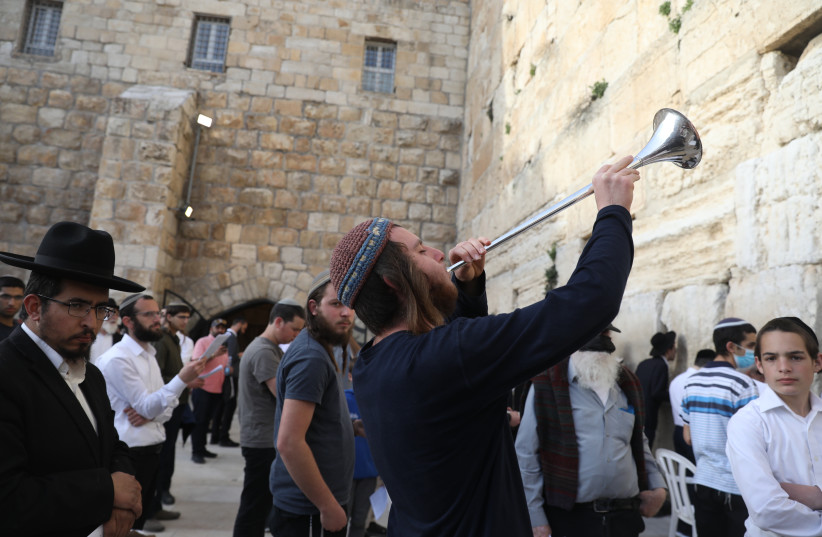“I am a traditional Jew. It took me a while to say this simply out of conscious choice," MK Michael Bitton wrote two years ago on his Facebook, announcing a new Knesset caucus, promoting traditional Judaism.
For decades, Israeli society has been using a number of terms in order to define the Jewish identity of individuals and groups. Those who identify simply as "traditional," however, always seemed to be invisible or non-existent in public discourse. In a way, it made sense that these Jews weren’t looked upon as a group, but rather as a bunch of people who were somewhere on the religious spectrum.
A groundbreaking study conducted by the Jewish People Policy Institute (JPPI) has unveiled an unexpected truth about Israeli society. A staggering 45% of Israelis identify themselves as traditional, defying simplistic categorizations of secular, religious, or Orthodox. This eye-opening research, conducted by Gabriel Abensour has ignited a fervor of discussion and reshaped our understanding of Israel's social, religious, and political landscape.
Contrary to widely held assumptions, the study, titled Traditionalists and Traditionalism in Israel, exposes the nuanced identity landscape within Israel. According to the study, traditionalism emerges as the largest identity group in the country, playing a central role within the Israeli political center.
However, traditionalism is not a standalone identity. It often coexists with another primary identity, such as secular-traditional or religious-traditional. It serves as a secondary identity, a unique "surname" that individuals embrace alongside their primary affiliation.

Another surprising revelation from the study dispels the assumed connection between traditionalists and the right-wing Likud Party. Contrary to popular belief, only half of the traditionalist public aligns themselves with the Likud party, showcasing a diverse range of political preferences within the traditionalist community.
Traditional Jews found all over the political spectrum
The study challenges the commonly held perception that traditionalists embody conservatism. Quite the opposite, the research highlights the inherent pluralistic nature of the massive traditionalist population. Rejecting coercion in any form, traditionalists staunchly support freedom of religion and religious liberties, extending this support to both secularists and the ultra-Orthodox.
A significant aspect of the study explores how traditionalists perceive Israel's Jewish identity. Surprisingly, 55% of them regard the state's Jewishness as primarily grounded in a national component, placing less emphasis on the religious dimension.
Furthermore, a considerable proportion of traditionalists interpret Israel's Jewish character through democratic principles and tolerance, aligning with the views of secular individuals.
The study delves into the factors contributing to the waning prominence of traditionalism as an autonomous self-identity. It notes the prevalence of an educational dichotomy in Israel, with the choice mainly between state-religious schools and secular state schools.
Remarkably, traditionalist educational institutions are non-existent, leaving traditionalist children, especially those attending secular schools, vulnerable to repeated encounters with critical remarks about their traditional identity from educators and the education system.
The study unveils a captivating trend. Traditional identity, once considered confined to specific demographics, namely Mizrahi Jews, has transcended borders. Today, an increasing number of Ashkenazi Jews, individuals from the former Soviet Union, and others, are embracing traditionalism as their self-identity. This remarkable development demonstrates that traditionalism has evolved into a post-denominational movement, surpassing its initial confines.
According to a 2020 survey, the study reveals an intriguing breakdown of the traditionalist demographic. Approximately 46% of individuals identifying as traditional have Eastern origins, while 14% have European roots. Notably, 41% of traditionalists were born to a Sabra (Israeli-born) father, further highlighting the diversity within the traditionalist community.
Reflecting on the study's significance, Prof. Yedidia Stern, president of JPPI, emphasized the importance of traditionalism in fostering diverse Jewish identities rooted in broad consensus.
In contrast to rigid and categorical identities often associated with the Jewish public in Israel, traditional identity, as noted by Abensour, a researcher at the JPPI and the study's editor, proves to be "porous." In other words, “It assimilates other identities while maintaining its distinct character.”
This study serves as a reminder that identities cannot be easily reduced to simplistic labels but require a nuanced understanding to capture the multifaceted nature of a nation's identity tapestry.
